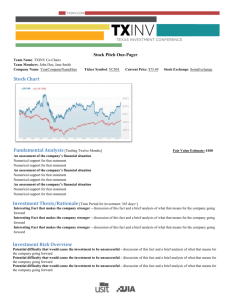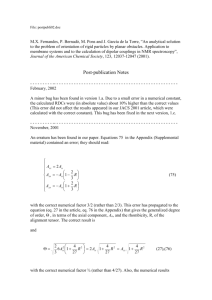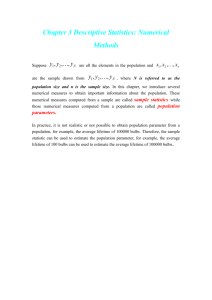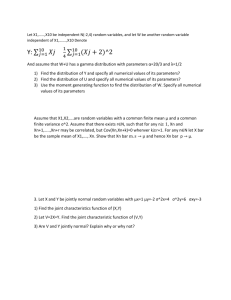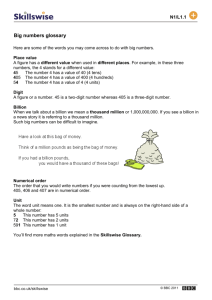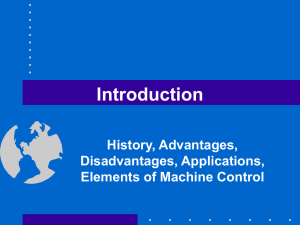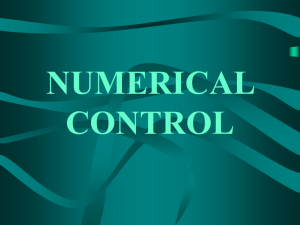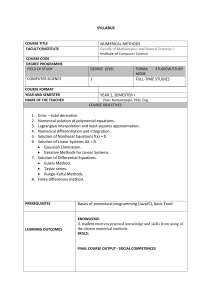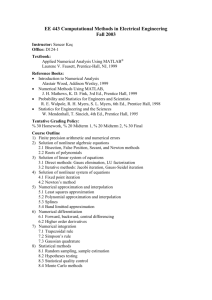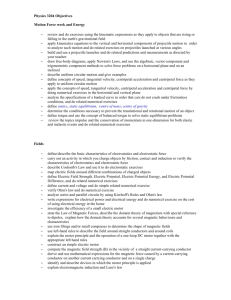Course name: Digital Image Processing
advertisement
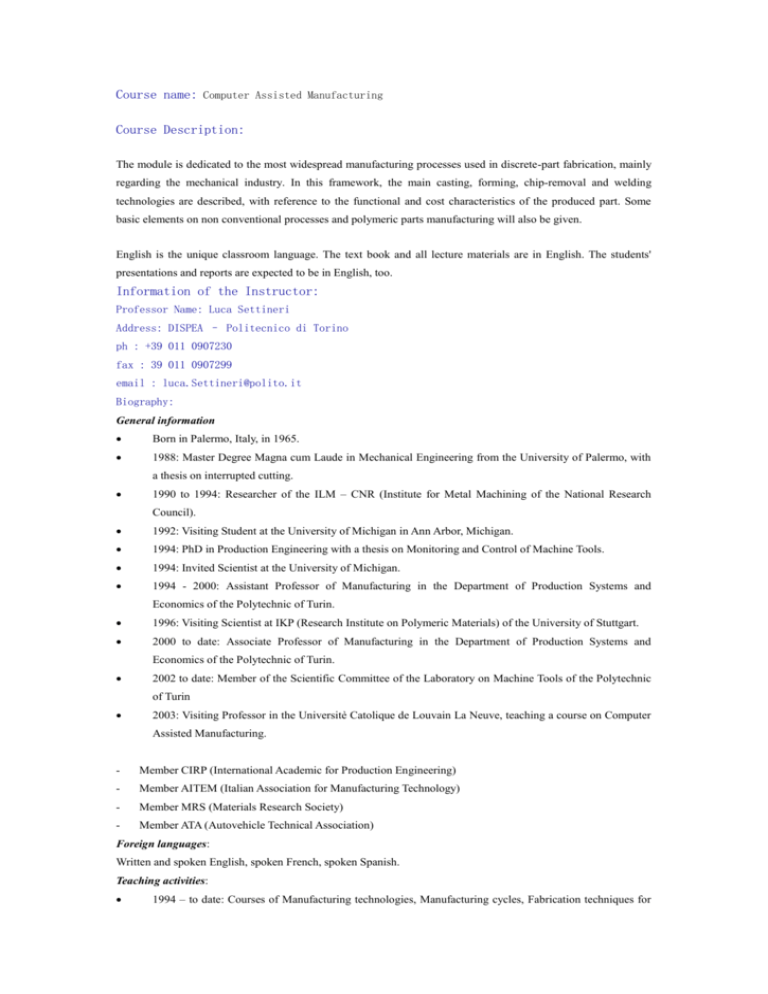
Course name: Computer Assisted Manufacturing Course Description: The module is dedicated to the most widespread manufacturing processes used in discrete-part fabrication, mainly regarding the mechanical industry. In this framework, the main casting, forming, chip-removal and welding technologies are described, with reference to the functional and cost characteristics of the produced part. Some basic elements on non conventional processes and polymeric parts manufacturing will also be given. English is the unique classroom language. The text book and all lecture materials are in English. The students' presentations and reports are expected to be in English, too. Information of the Instructor: Professor Name: Luca Settineri Address: DISPEA – Politecnico di Torino ph : +39 011 0907230 fax : 39 011 0907299 email : luca.Settineri@polito.it Biography: General information Born in Palermo, Italy, in 1965. 1988: Master Degree Magna cum Laude in Mechanical Engineering from the University of Palermo, with a thesis on interrupted cutting. 1990 to 1994: Researcher of the ILM – CNR (Institute for Metal Machining of the National Research Council). 1992: Visiting Student at the University of Michigan in Ann Arbor, Michigan. 1994: PhD in Production Engineering with a thesis on Monitoring and Control of Machine Tools. 1994: Invited Scientist at the University of Michigan. 1994 - 2000: Assistant Professor of Manufacturing in the Department of Production Systems and Economics of the Polytechnic of Turin. 1996: Visiting Scientist at IKP (Research Institute on Polymeric Materials) of the University of Stuttgart. 2000 to date: Associate Professor of Manufacturing in the Department of Production Systems and Economics of the Polytechnic of Turin. 2002 to date: Member of the Scientific Committee of the Laboratory on Machine Tools of the Polytechnic of Turin 2003: Visiting Professor in the Universitè Catolique de Louvain La Neuve, teaching a course on Computer Assisted Manufacturing. - Member CIRP (International Academic for Production Engineering) - Member AITEM (Italian Association for Manufacturing Technology) - Member MRS (Materials Research Society) - Member ATA (Autovehicle Technical Association) Foreign languages: Written and spoken English, spoken French, spoken Spanish. Teaching activities: 1994 – to date: Courses of Manufacturing technologies, Manufacturing cycles, Fabrication techniques for the Polytechnic of Turin, University of Palermo, University of Bolzano and Universitè Catolique de Louvain La Neuve. 2008-Teacher of the Courses of Manufacturing and of Computer Assisted Manufacturing for the Sino-Italian Campus PoliTong, with the Tongji University of Shanghai. 2002-Member of the teaching board of the Doctorate in Production Systems: Design and Engineering. Teacher of the Doctoral Course on “Coatings for anti-wear applications” since 2004. Research products: Prof. Settineri is author or co-author of more than 100 printed papers published on national and international journals and on the proceedings of national and international conferences on the following subjects: 1) Manufacturing processes optimisation, with special reference to machining; 2) Group Technology; 3) Rapid Prototyping; 4) Functional design; 5) Mechanical joining methods for light alloys sheet metals. Text Book S. Kalpakjian and S. Schmid, Manufacturing Processes for Engineering Materials, 5th Edition, Prentice Hall, 2007. Syllabus The presentations will be posted on the site of the Course before each lecture. Lectures in the following are intended of 90 minutes. Lecture 1: Historical hints on Numerical Control of Machine Tools. Definitions of numerical control and automation. Lecture 2: Cost and quality comparison between numerical controlled production and standard production methods. Lecture 3: The design process and the role of CAD in the context of the design and manufacturing process. Lecture 4: CNC Machine tools. General characteristics and structure. Lecture 5: Number of axes and main components: actuators. Lecture 6: Transducers. Lecture 7: Reference systems. Lecture 8: Tool changing devices. Lecture 9: Structure of the numerical control unit. Lecture 10: Interpolators. Lecture 11: The operation and programming of numerical control machine tools: Manual programming. Lecture 12: ISO code. Lecture 13: Simple examples of manual programming. Lecture 14: Linear and circular interpolation. Lecture 15: Computer-assisted part programming. The machining of curved surfaces. Lecture 16: The machining of curved surfaces. Lecture 17: Cutter compensation. Tool path generation. Lecture 18: Rapid Prototyping and manufacturing: Basic principles and common features. Lecture 19: Intrinsic errors. Communication standards for the files. Lecture 20: Main RP techniques: SLA, SLS. Lecture 21: Main RP techniques: LOM, FDM, 3D Printing. Lecture 22: Overview of the production management system in terms of a hierarchy of requirement planning, production planning and control systems. Lecture 23: The extended factory. Lecture 24: Manufacturing strategies. Lecture 25: Requirement planning techniques. Lecture 26: Production Activity Control. Lecture 27: Basic scheduling techniques. Lecture 28: Heuristic approach. The just in time. Homework and Exercises Numerical exercises on some of the subjects discussed during the lectures will be carried out throughout the course. Some selected exercises will be assigned to the students as homework. Final exams A written test will be assigned, composed by numerical exercises and a multiple-choice questionnaire.
